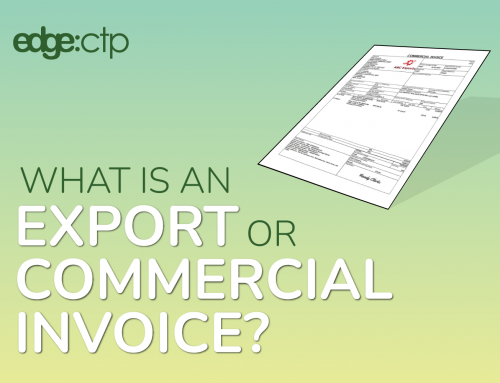I’m Geoff Runcie and at the start of 2015, I was lucky enough to be involved in a series of sessions with the International Trade expert, Murdo Beaton. We were accompanied by Abdul Mann, whose team has built a range of international trade solutions under the brand EDGE. Abdul helped to explore some of the ideas Murdo presented in his answers about the market for my product overseas.
Today you’ll hear one of ten questions presented to Murdo, but if you want access to the entire session or future sessions, there is a link at the end of this blog. Alternatively, feel free to drop me an email on Support or visit www.edgectp.com.
A full transcript of this session has been provided below.
Geoff:
How can I tell if there is a market for my product overseas?
Murdo:
Once you have determined that your company is ready to export or is capable of exporting, and you have satisfied yourself on all relevant fronts that you would be able to sustain an overseas business model, then you have to consider whether there is a market for your product. Or more to the point, where there is a market for your product overseas.
There is likely to be a market for your product in many overseas destinations. It is probably unwise to actually try and approach all of these possible markets at once. In the first instance, one should be cautious and enter into an area of market research in order to determine which markets one would be more comfortable with in terms of:
- The market culture
- Market business practice
- A market opportunity that exists there.
Probably then consider, “Yes, out of five potential markets, there are two that I’m very comfortable with in terms of being able to do business with them. Maybe the concentration should be on those two markets” One of the main things when determining whether there is a market for my product overseas is to determine whether my product deserves a market overseas! What I mean by that is, is your product compatible with the requirements of the markets overseas that you are suggesting would be the most favorable for you to approach in the initial stage. Here again, the business leader would have to research their own product or service and determine its compatibility with what these potential target markets are likely to demand….(Scroll down to continue)
Abdul:
So what you’re saying is that we should cherry-pick the ones we want to go for because as they say, nothing is for everyone. In which case you’ve got to find the few people that really want to buy your product, are interested in your product and then want to tell others about your product. So, in order for you to be able to do that you need to do a level of research to find out, what are those markets that you want to cherry-pick.
But, if we can roll back a little bit, what are the mechanisms that people could use to start looking at the bigger picture of, which ones are going to be the markets I want to look at? Would you be able to use the internet, Google your way through it? Would you follow your competitors and see what market places they were in? Or would you go to a market research agency to ask them? Or would you consider any of the government agencies like UKTI to support you in that? So what do you think is the most attractive, or all of the above?
Murdo:
Identifying what your competitors are doing is of course of huge importance. If your product is compatible with your competitors and they are already enjoying the benefits of an overseas market, the likelihood is that your product may also be able to benefit from that market. However, even if your competitor is enjoying the benefits of a particular market, it is still necessary for you as a business leader to conduct your own research on that market. The research can be at various levels. It can be a feasibility research, which just gives you the basic information, or it can be a more detailed research, which goes right into the nuts and bolts of what you do actually need to be doing in terms of achieving the maximum potential in that market, in the face of competition from your competitors. Yes, there are government agencies (Scottish enterprise, UKTI, Chambers of Commerce.) All these agencies have a provision that could be used to help you identify the market.
Yes, of course, the internet is always there, and today the internet is a mass of information, but one thing I would say about the internet on a cautionary note is, one should be careful that the information that is being identified is information that is current and not information that is somewhat outdated. A lot of people use the internet to launch information that sometimes is not necessarily as current as it should be and in some cases is quite misleading. I’m not suggesting that the internet should not be considered as a source of information, but with a degree of caution.
Our own government agencies are about to provide a lot of information on market research and it is so important to stress the fact that you really shouldn’t be entering a market without doing the proper research because it’s this information that is critical to determining whether or not your business is actually going to enjoy a sustainable period of time in the overseas market. Because if you muck one market up at the early stages of your ventures abroad, it’s going to actually dampen your enthusiasm, and that dampening of enthusiasm could spread right through your company and they might get somewhat disillusioned about the benefits of going international. So market information is absolute. A business leader cannot possibly make the proper judgment on where they’re taking their business without this valuable component information.
Geoff:
I hope you enjoyed this audio. If you’d like more information on international trade, go to EdgeCTP Blog.





